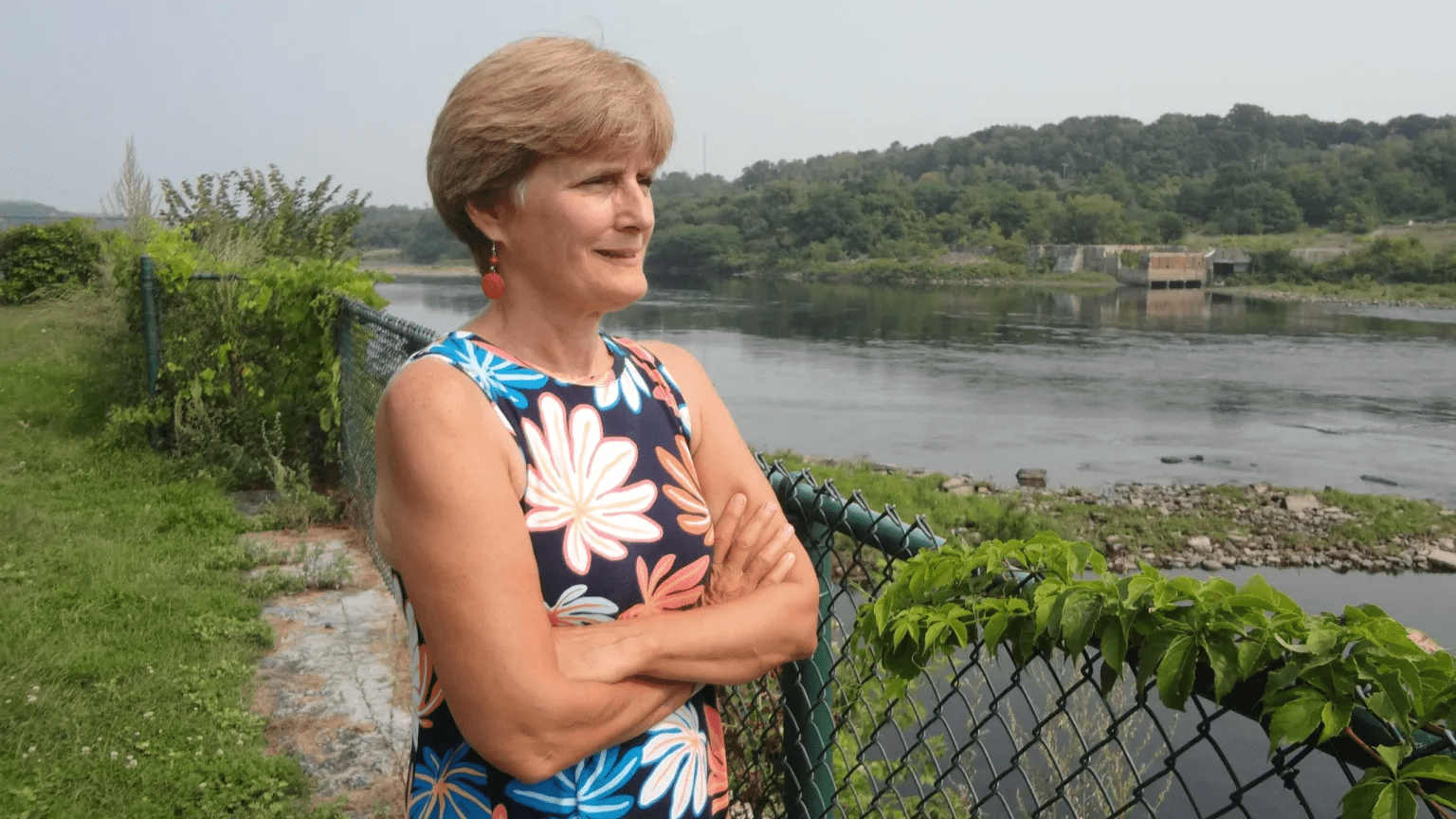Once upon a time, not so very long ago, high-speed internet was a luxury to which to aspire. Can you remember such a time?
Rural Americans certainly can. Fortunately, today, for many but not all, triple-digit Mbps download speeds are available and reasonably affordable.
Peggy Schaffer is among the broadband advocate-actualizers who’ve helped relegate those days to a faint memory.
Schaffer — a resident of the rural Maine town of Vassalboro, midway between Portland and Bangor — has served in multiple roles in advancing rural broadband in her home state and beyond. She was co-chair of the Maine Broadband Coalition, director of the ConnectMaine Authority and served on the State Broadband Leaders Network. She’s now a board member of the American Association for Public Broadband and a strategic adviser to VETRO FiberMap.
She’s assumed these duties because she recognized some years ago what high-speed internet access could afford and what its absence would curtail. She recognized it would be every bit as important, if not more so, for rural residents as urban.
Schaffer points to 2015 as around the time rural broadband began to really gain momentum. Prior to that, she recalls, “all kinds of things that were taken for granted in more urban areas just weren’t happening” in rural communities — telehealth and online education, for example.
The push to break down geographic barriers to high-speed internet has continued to gain momentum.
Schaffer was drawn to advancing broadband not just for what it could offer technologically but for its potential as a civic tool. Broadband advocacy, she said, offers “a significant opportunity to draw a rural community together,” to hone organizing skills, to educate.
It involves engaging homeowners, businessowners, government officials, health care providers — she saw the effort as a unifying one.
“Everybody wants an organizing principle,” Schaffer asserts, and in the course of organizing, “they’ve learned, as a community, how to talk to each other and how to build on that.”
This unifying opportunity, she believes, brings transformative returns.
Wouldn’t thrive without it
Schaffer was born and raised in Connecticut but has lived in rural Maine for more than 40 years. Her professional life has been rich and eclectic.
She first worked as a respiratory therapist; was then a fundraiser for the Girl Scouts; helped launch a capital campaign at Unity College (now Unity Environmental University) in New Gloucester, Maine; and was chief of staff for Libby Mitchell, who served as Maine’s speaker of the House then Senate majority leader, the first woman in the country to hold both positions.
She worked for the Maine Department of Economic and Community Development, then as the small-business advocate in the Maine secretary of state’s office. It was in this last position that she became engaged in advancing broadband opportunities.
“It became really clear to me that rural communities were not going to thrive unless they got a connection,” she said.
Schaffer is a firm advocate for communities taking ownership — literal ownership — of their broadband network: bringing “a high-quality, universal service” to everyone — “not for profit, but for service.”
There’s a cost to that, of course, but the community then can make decisions about how to lower that cost, she said. “When you take the profit margin out of it, it allows you to serve more people” at a reasonable price.
Schaffer believes broadband should be considered a utility — that it should be founded in the “public-good.”
“There’s a regulatory structure around electricity that has to do with price and profit,” and, quite often, a conversation about who should own it. “But that conversation doesn’t happen around broadband because we’ve made the assumption that it’s going to be private companies that do this work.”
“And it doesn’t have to be that way,” she suggested, “and maybe it shouldn’t be, because of the value of broadband to a community.”
Far-reaching opportunities
Take, for example, farming: “We have a lot of people who grow potatoes in Maine, and you used to just irrigate your entire field. You just said, ‘Well, it hasn’t rained in a while; we’re going to irrigate.”
“Now the technology has changed so that you can tell what part of the field needs water and what doesn’t and where you need to put fertilizer.”
“So you can be much more efficient; you can save all kinds of money and be more productive and get more yield, because you’re using the technology that’s based on broadband. Most of that is wireless, but still you need a big fat connection.”
Or health care: “With telehealth, what we’ve learned is that you can save a lot of money, especially for things like mental health and addiction. If you’re able to treat people at home, or in a closer location than driving 15 miles to a hospital, people are more likely to be compliant with their treatment.”
Telehealth is a godsend in rural Maine. “We have very few specialists in this state” — few oncologists and rheumatologists, for example. With a good connection, you’re virtually within their office,” she said.
A recipe for success
In December 2020, Congress gave the National Telecommunications and Information Administration $300 million to allot to states through competitive grants. The Maine Connectivity Authority (into which the ConnectMaine Authority was integrated) was one of 10 grantees, receiving $30 million, “which was a huge amount of money for us,” Schaffer said. They used it to build out into seven regions.
Among those regions was rural Franklin County, in western Maine.
Charlie Woodworth serves as executive director of Greater Franklin Economic and Community Development. His initiatives include bringing reliable high-speed internet to communities throughout the county.
Franklin County is blessed with beautiful natural resources and relies heavily on tourism. “This is a spectacular place to be,” Woodworth said. “It’s amazing.” But the county has a shrinking, aging population. “Not a recipe for success.”
Woodworth said when he assumed the role of spearheading economic development, he “took the show on the road,” traveling to the county’s 22 towns, talking with everyone, and soliciting views on how to invest in moving forward.
“Broadband rose to the top,” he said. The consensus was that “if we had reliable high-speed internet everywhere — not just in our service centers, not just in the big towns, but in our tiny little towns like Weld or Rangeley — then we’ve got something to offer.”
“When we started this,” Woodworth said, “I was intimidated with going to the state through the application process. It was just intimidating. Writing grants for foundations is one thing, but this just seemed like many, many more layers.”
Schaffer’s assistance, he said, was invaluable. She knew well the process; but more, Woodworth said, “She helped give me the confidence that, ‘Okay; you’re on the right track. Keep going.’”
As of last December, he said, more than half of this sprawling county can connect to a fiber network, with more communities continuing to come on board.
Amplifying voices
Much of Schaffer’s work has been about amplifying the voices of consumers.
“The intent of the Broadband Coalition from the beginning was to give consumers a voice in the legislation policy,” she said, “because up until then, and in many states, it’s not consumers who are in the legislature talking to legislators — it’s providers, and they have a very different view.”
“We created broadband utility districts,” she said. “We have long had the ability for towns to get together to do water and sewer districts. All we did was add in broadband.”
A broadband utility district “has the exact same power as a sewer and water district, which is pretty extensive,” she said.” They can bond, they create a board, they can bring communities in, they can share the cost across a number of communities. So if one community has a very low population and it’s going to cost a lot, the whole utility district shares in that cost. … It’s a pretty powerful tool.”
Though “retired,” Schaffer stays active with her work for the American Association for Public Broadband, which was launched last year.
“The kind of work we’re going to start trying to do is trying to jump in in places where the public networks are being attacked by the monopoly-power owners,” she said.
“And we’re also going to put together a toolkit to help communities figure out how to do this work… Again, it’s about community organizing, how you get the community continually engaged, how you stay transparent in your decisions, how you continually involve people in this process that gets you to the end, so that when the opposition comes in you’ve built up that mountain, and they can’t climb it.”







